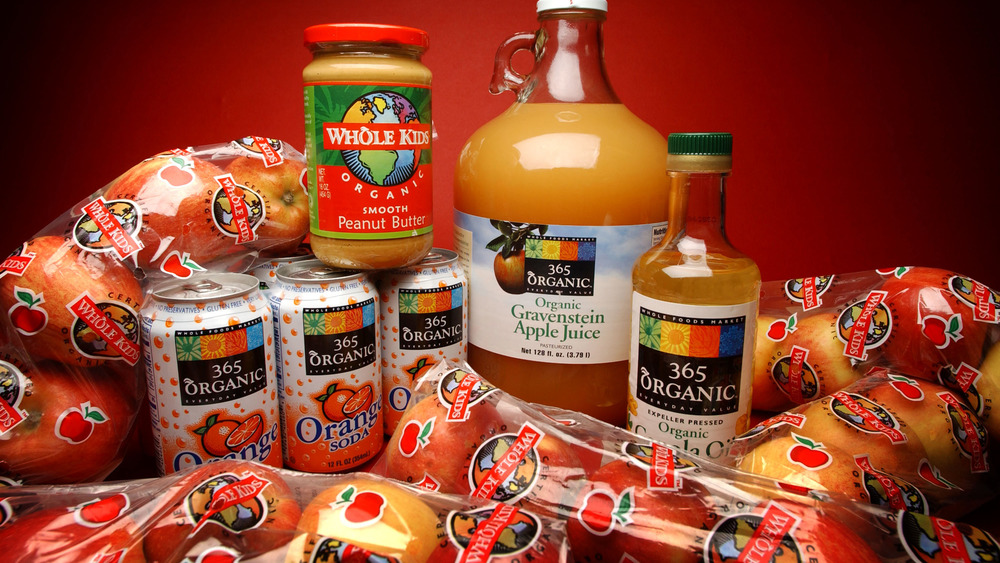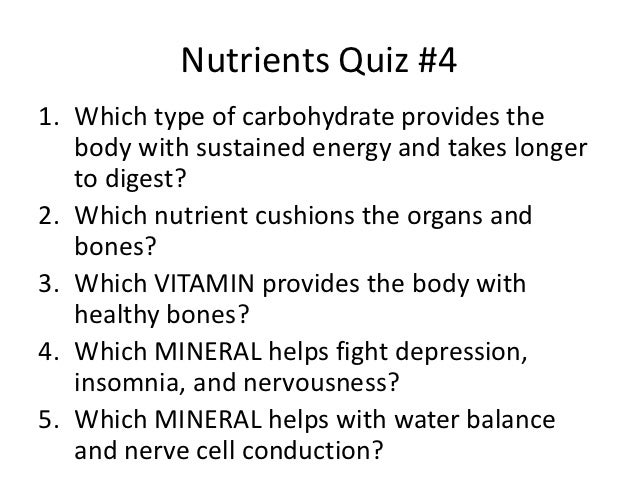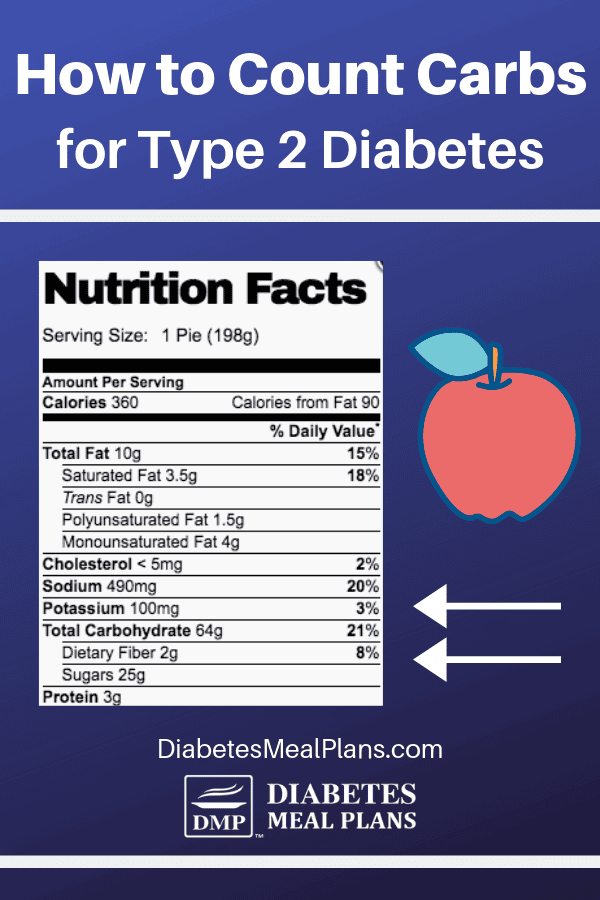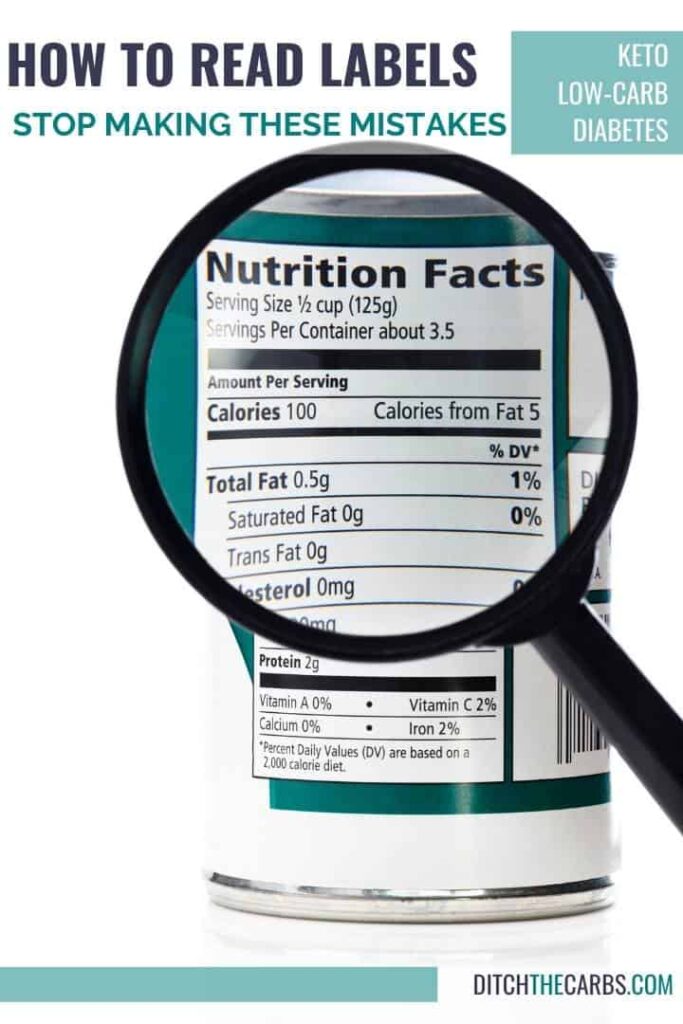41 understanding carbs on food labels
A Complete Guide to Reading and Understanding Nutrition & Ingredient Labels Often, the numbers you see on the label don't correlate with eating the entire bag, box, carton, etc., even when the container is small. Also be sure to check out the nutrients section, since this will tell you the total carbohydrates, sugars, and added sugars (plus many other relevant nutrients). Understanding Food Nutrition Labels | American Heart Association 1 - Start with the serving information at the top. This will tell you the size of a single serving and the total number of servings per container (package). 2 - Next, check total calories per serving and container. Pay attention to the calories per serving and how many calories you're really consuming if you eat the whole package.
Understanding Food Labels - Nutrition: Science and Everyday Application The FDA uses the following definitions for interpreting the %DV on food labels:4 5%DV or less means the food is low in a nutrient. 10% to 19%DV means the food is a "good source" of a nutrient. 20%DV or greater means the food is high in a nutrient.

Understanding carbs on food labels
Reading labels | Diabetes UK Key points Always look at the 'total carbohydrate' on the label when carb counting. This will make sure you are counting both the complex (starchy) and simple (sugary) carbs in your food. Both will raise your blood glucose (blood sugar) levels, and need to be matched with insulin. Low Carb Guide to Understanding Nutrition Labels - Virta Health According to labeling laws in the U.S., if a food contains less than 0.5g of trans fat per serving, the label can say 0g, so be sure to read the list of ingredients. You can spot trans fats by the words "hydrogenated" or "partially hydrogenated" with oils. Sugar-free or Low-carb: Don't be fooled by clever packaging and slick marketing. How to Read Carbohydrates on Food Labels - GlycoLeap From the label, the total carbohydrate is 37 g (~2.5 servings carbohydrates). But when you subtract the dietary fibre (4 g), it becomes 33 g of carbohydrates (~2 servings carbohydrates). That means, only 33 g of carbohydrates that will give impact to the blood glucose.
Understanding carbs on food labels. Reading Food Labels for Carbohydrates - dummies Reading food labels is a vital skill for anyone who counts carbohydrates. To find the amount of carbohydrates in your foods, follow these steps: Look for the line that reads "Total Carbohydrate" on the label. The value on this line will tell you how many grams of carbohydrates are in one serving of the food. This Is How to Read a Nutrition Facts Label on the Keto Diet Depending on the daily carb intake you've determined for yourself to stay in ketosis, this is a quick way to determine whether you have room in your daily eating plan for a particular food. (Remember, a ketogenic diet is typically a ratio of about 70-75% fat, 15-25%+ protein, and 5% or less of calories from carbs.) How To Read Food and Beverage Labels | National Institute on Aging These foods have a legal limit to how many calories, grams of fat, or carbohydrates (carbs) they can contain per serving. However, if a serving size is very small, you may end up eating multiple servings in one sitting, ultimately consuming the same amount of fat, calories, and carbs as the regular version of the food. Multigrain. Understanding Ingredients on Food Labels - American Heart Association Food labels are an important source of information about calories and the nutritional value of the foods you eat, a crucial tool in building a heart-healthy diet. The Nutrition Facts information is always displayed in the same orderly fashion and helps you understand how much of certain nutrients that you need to limit are contained in the ...
Fats, sugar, carbs: How to read a food label (and seven words to watch ... The "total carbohydrate content" of the food will actually include the sugars within this number and give you an idea of the amount of fuel a food contains. For example, if you consider that a slice of bread or a piece of fruit contains 15-20 grams of carbs per serve, then a food that contains 60-80 grams of carbs per serve is an energy-dense ... Understanding Food Nutrition Labels - American Heart Association 1 - Start with the serving information at the top. This will tell you the size of a single serving and the total number of servings per container (package). 2 - Next, check total calories per serving and container. Pay attention to the calories per serving and how many calories you're really consuming if you eat the whole package. Get Smart On Carbs | ADA - American Diabetes Association When you eat or drink foods that have carbohydrate—also known as carbs—your body breaks those carbs down into glucose (a type of sugar), which then raises the level of glucose in your blood. Your body uses that glucose for fuel to keep you going throughout the day. Learning To Read Labels :: Diabetes Education Online The "Nutrition Facts Label" is found on the outside of the container. To count carbohydrates, look at three things: Serving Size Number of Servings Per Container Grams of Total Carbohydrate per serving The total carbohydrate tells how many grams of carbohydrate are in one serving. Be careful when reading the label.
How to Understand and Use the Nutrition Facts Label | FDA For certain products that are larger than a single serving but that could be consumed in one sitting or multiple sittings, manufacturers will have to provide "dual column" labels to indicate the... Food Labels and Counting Carbs - dummies Total Carbohydrate is listed in grams. Because %Daily Value is written in bold and off to the right side of the label, and lined up neatly with the actual amount, it is easy to allow your eye to zero in on the %Daily Value rather than the actual amount in grams. How to Read a Food Label | Atkins The FDA requires that a nutrition label include the total carbohydrates. The amount of dietary fiber and sugars must also be listed. However, the law does not require that other carbohydrate subcategories appear. Some manufacturers voluntarily include the subcategories of sugar alcohol and "other carbohydrates." Others do not. Reading Food Labels | ADA - American Diabetes Association The Nutrition Facts labels on foods are really the key to making the best choices. We'll cover the basics so that these labels make shopping easier for you. Get started Understanding Carbs You've heard it all. From carb-free to low-carb, to whole and empty carbs, it's hard to know what it all means. Learn more Food & Blood Sugar
Food Labels: Carbohydrates | Home & Garden Information Center The Daily Value (DV) for total carbohydrate is 300 grams (g) or 100% DV, based on a 2,000-calorie diet. This number combines several types of carbohydrates: dietary fiber, sugars and complex carbohydrates. Listed below total carbohydrate on the food label are the values for dietary fiber and sugars.
How To Figure Out The Carbs On Nutrition Labels Total Carbohydrate, shown in grams, is first. It gives you the total number of usable carbs per serving. This number includes starches, complex carbohydrates, dietary fiber, added sugars, and non-digestible additives. The subheadings under Total Carbohydrate are Dietary Fiber, sometimes broken down into Soluble and Insoluble Fiber; Sugars; and ...
Understanding food labels | Diabetes UK The labels show how many calories are in the food or drink and are also colour coded to show whether the food is low (green), medium (amber) or high (red) in fat, saturated fat, sugar and salt. The information on the front of the pack also tells you how the portion of the food contributes to the Reference Intake (RI) of an adult.
Food labels - NHS These labels provide information on the number of grams of fat, saturated fat, sugars and salt, and the amount of energy (in kJ and kcal) in a serving or portion of the food. But be aware that the manufacturer's idea of a portion may be different from yours. Some front-of-pack nutrition labels also provide information about reference intakes.
PDF Read the Food Label for Carbohydrates - NHLBI, NIH Read the Food Label for Carbohydrates Food labels help you choose foods that are lower in calories and in carbohydrates and sweeteners. Here is a food label for a 12-ounce regular soda. The label provides lots of useful information. 1. Serving Size and Number of Servings The serving size is 12 ounces. There's 1 serving in this container. 2.
Understanding Food Nutrition Labels - Professional Heart Daily 1 - Start with the serving information at the top. This will tell you the size of a single serving and the total number of servings per container (package). 2 - Next, check total calories per serving and container. Pay attention to the calories per serving and how many calories you're really consuming if you eat the whole package.
Food Labels | CDC If you eat the whole thing, you are eating 8 times the amount of calories, carbs, fat, etc., shown on the label. Total Carbohydrate shows you types of carbs in the food, including sugar and fiber. Choose foods with more fiber, vitamins, and minerals. Choose foods with lower calories, saturated fat, sodium, and added sugars. Avoid trans fat.
How To Read Nutrition Labels (Like a Pro) - Ditch The Carbs The front of the box states it is high in fibre, cholesterol-lowering and has a 4.5 star rating, but look at the nutrition label and it tells another story. Per ¾ cup serving (and most people serve 1-2 cups) + ½ cup milk = 37.9g carbs, 15.5g sugars. The only reason it has any vitamins is because it has been fortified.
Understanding Food Labels | The Nutrition Source | Harvard T.H. Chan ... Under the Food Allergen Labeling and Consumer Protection Act of 2004, eight major food allergens—milk, fish, tree nuts, peanuts, shellfish, wheat, eggs, and soybeans—are required to be listed in a "contains" statement near the Ingredients list if present in a food. An example would be "contains wheat, milk, and soy."
How to Read Carbohydrates on Food Labels - GlycoLeap From the label, the total carbohydrate is 37 g (~2.5 servings carbohydrates). But when you subtract the dietary fibre (4 g), it becomes 33 g of carbohydrates (~2 servings carbohydrates). That means, only 33 g of carbohydrates that will give impact to the blood glucose.
Low Carb Guide to Understanding Nutrition Labels - Virta Health According to labeling laws in the U.S., if a food contains less than 0.5g of trans fat per serving, the label can say 0g, so be sure to read the list of ingredients. You can spot trans fats by the words "hydrogenated" or "partially hydrogenated" with oils. Sugar-free or Low-carb: Don't be fooled by clever packaging and slick marketing.
Reading labels | Diabetes UK Key points Always look at the 'total carbohydrate' on the label when carb counting. This will make sure you are counting both the complex (starchy) and simple (sugary) carbs in your food. Both will raise your blood glucose (blood sugar) levels, and need to be matched with insulin.

/Untitled-design-1--5755c3703df78c9b46903dab.jpg)





:max_bytes(150000):strip_icc()/Untitled-design-5753677f5f9b5892e8d7d171.jpg)





Post a Comment for "41 understanding carbs on food labels"